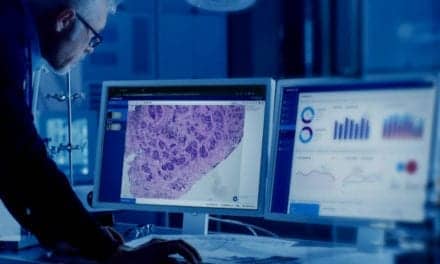Purigen Biosystems, Pleasanton, Calif, has launched its ionic purification system, a small benchtop unit that utilizes the company’s core isotachophoresis technology to extract, purify, and concentrate nucleic acids from biological samples in 1 hour, with less than 3 minutes of hands-on time per sample.
The ionic purification system enables the automated extraction of nucleic acids with dramatically increased yields and improved purity from a wide range of sample types, including cultured or sorted cells and formalin-fixed, paraffin-embedded (FFPE) tissues. Biological samples are gently lysed and then loaded into the ionic fluidics chip. The ionic system then applies an electric field to the chip and the nucleic acids are isolated in their natural, native form using the company’s proprietary technology. The nucleic acids are not denatured or dehydrated, and there is no binding or stripping from fixed surfaces. The process minimizes fragmentation and eliminates any bead or buffer contamination. The extracted nucleic acids are pure, abundant, and ready for analysis by any downstream technique, including next-generation sequencing (NGS) or polymerase chain reaction (PCR).
Components of the ionic purification system include the ionic purification instrument, a small benchtop system driven by a simple touchscreen interface that can process one fluidics chip with eight samples in approximately 1 hour; the ionic FFPE to pure DNA kit, including six chips and a reagent set with all the enzymes and buffers needed to perform DNA extraction directly from as many as 48 FFPE scrolls or slides; and the ionic cells to pure DNA kit, including six chips and a reagent set with all the enzymes and buffers needed to perform cell lysis and DNA extraction from cultured or sorted cells in up to 48 samples.
“The new ionic purification system will fundamentally change how nucleic acids are purified from precious samples prior to downstream analysis using NGS and PCR,” says Barney Saunders, PhD, CEO of Purigen. “When working with challenging sample types such as FFPE, or with small tissue samples, the ability to purify nucleic acids with maximal yield and quality is crucial. More abundant and higher-quality nucleic acids allow for superior quality data, which provides researchers with improved biological insights and empowers clinicians with more actionable information.”
For more information, visit: Purigen.







